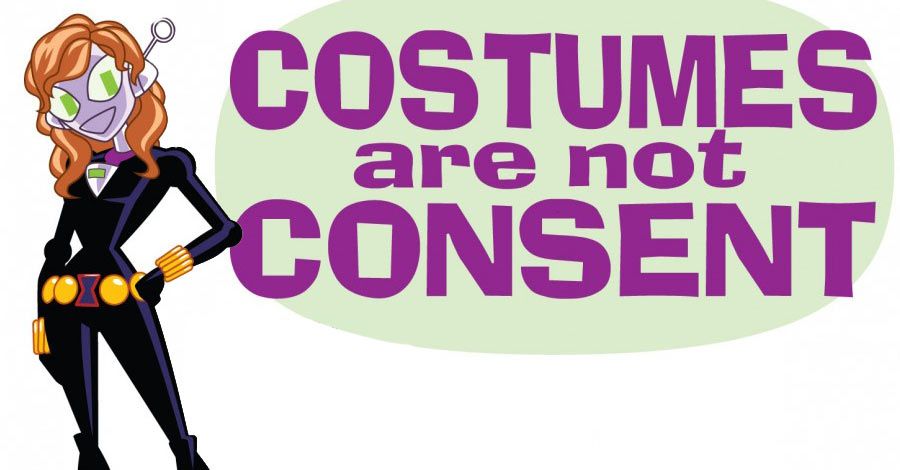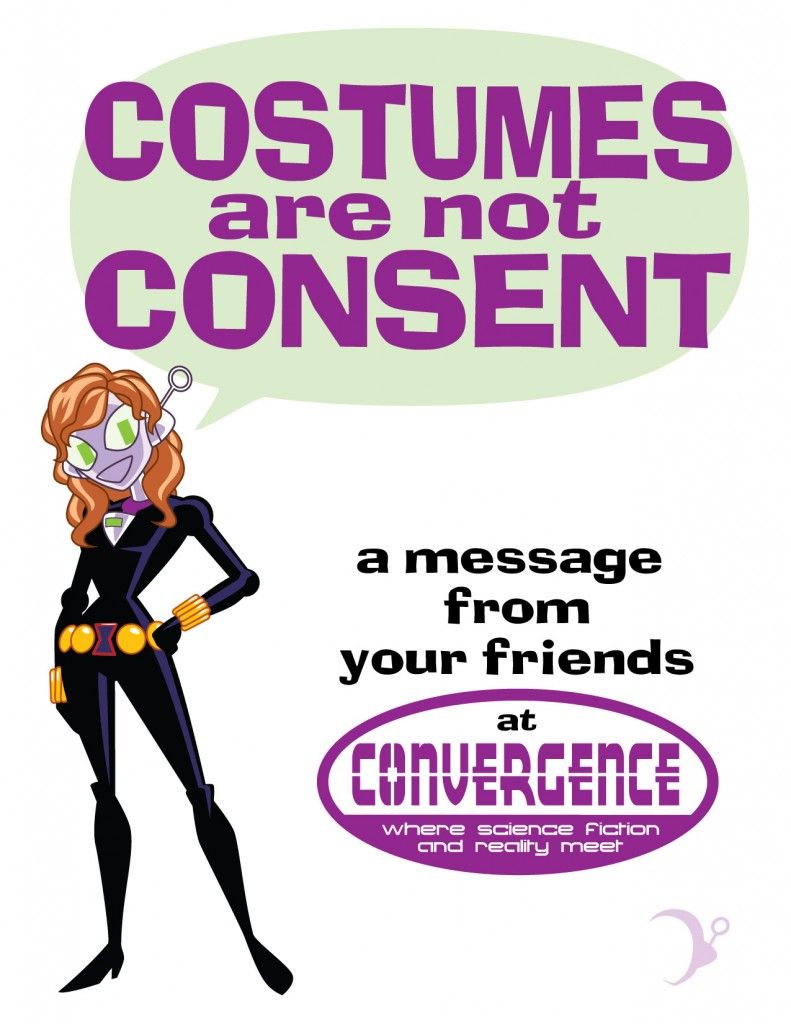On the last weekend of July, fans descended on downtown San Diego to celebrate their love of all things pop-culture at the annual Comic Con International. The convention draws some 130,000 convention-goers, gawkers and geeks to the downtown area. It's been dubbed "Nerdi Gras" due to the overwhelming amount of attendees that are often decked out in costumes and clothing depicting their favorite superpowered hero or villain. It's a giant party where we can go hang out with fellow fans and rub elbows with our favorite stars. But for some convention goers, the annual festival is no escape from the harsh reality of the world we live in.
Shortly after Comic-Con, a story surfaced about a young girl who was initially believed to have been assaulted and found unconscious near the pool at the Marriott Hotel. The family of the victim took to social media in hopes of finding the person who did this to their daughter. The story, which was featured on pop culture websites and major news outlets alike, unfolded across the Internet. Police initially said they had arrested a 29-year-old man and charged him with "sexual contact with a minor and contributing to the delinquency of minor," but declined to definitively connect it to the reported incident. On Thursday, July 31, San Diego Harbor Police released an updated statement, citing the girl's injuries as a result of a fall from a 6-foot wall, and that the man previously arrested would not face further charges. The incident left the cosplay community in shock, and brought nationwide attention to the annual gathering of fun loving fans.
When the story was first posted on the G33k HQ blog, the post included the name and a photo of the girl who was attacked -- it was later redacted when the site learned she was a minor. It was also noted that she was a cosplayer, and not long after the story started making the social media rounds, comments began to pop up, claiming the girl was asking for it all by the way she was dressed.
It's become common practice for mainstream media to label cosplayers as obsessive fans, freaks or even sexual deviants -- as was the case with Jimmy Kimmel's #PedestrianQuestion segment that aired the Monday following the accident. The late night talk show host had his crew go around to costumers at Comic Con and ask if they have ever had sex while in costume. The question may seem harmless enough to the nightly viewer, but it highlights several ongoing problems cosplayers are working to combat, both within the subculture and with their everyday peers. Let's not gloss over the fact that the question alone makes light of the old trope that nerds don't get down and dirty; that somehow being a fanboy or fangirl at a convention means you are incapable of having a love life.
Other outlets even took note of this and criticized Kimmel for his street-side harassment of con attendees. Salon's Daniel D'Addario wrote about the low points of this brand of comedy:
"There's a long tradition of civilians being a part of late-night bits, from Jay Leno's "Jay Walking" to David Letterman's "Stupid Human Tricks." But the cosplayers of Comic-Con seemed somehow less in on the joke than their predecessors. (One, for instance, said he stopped mid-coitus to make sure his superhero costume didn't rip.) Leno's segment in particular always seemed to make the point that none of us really know all that much, do we? Kimmel, meanwhile, seems to be assuring us that we are lucky not to be these lame-os, especially when he asked the audience whether they thought a young man in Transitions lenses and an apparent Jedi robe had ever used the Force, as it were. "Do we even have to ask?" chortled Kimmel."
The larger problem with Kimmel's bit, however, is the underlying tone of sexual harassment towards the costumed attendees. If a random blogger, YouTube personality, or shock jock had posed those questions, they would have been reported to con staff for harassment, and lambasted all over the walls of the Internet.
In fact, there have been several instances of attendees being harassed by self-styled journalists at conventions across the nation. Last fall at New York Comic Con, a public access show approached costumers with both sexually charged and racially insensitive questions. At 2013's PAX East, Crystal Dynamic's then-Community Manager, Meagan Marie, hosted a gathering of Lara Croft costumers. When it came time for reporters to interview the costumed fans, an unknown man identified as press asked, "How does it feel to be at a convention where none of the men could please you?" When Marie asked the man to clarify his question, she was accused of being "one of those oversensitive feminists," and that "the girls were dressing sexy, so they were asking for it." It's become such a huge problem within the cosplay community that fans have banded together to create the "Cosplay is not Consent" movement to help bring awareness to the harassment they face.
Ellie Schweizer started the CONsent project at Anaheim's WonderCon in 2013. Schweizer looked at the harassment she received, both online and at conventions, and decided to take action with her Cosplay =/= Consent movement. "I was tired of being harassed! I have been harassed at almost every convention I have been to in costume since my 14th birthday, when a woman I didn't know forced a kiss on me. I saw what #INeedFeminismBecause did to empower women who felt harassed and wanted to give cosplayers a similar outlet through my photo project," Schweizer told me. "Then it morphed into a movement, and I used my newfound platform to educate con-goers about what they can do to fight harassment."
She took photos of costumers holding a white board that read Cosplay =/= Consent, and the movement took off. Soon, cosplayers were publishing their own CONsent photos and stories. Conventions took notice and began enacting stricter anti-harassment policies. Unfortunately, not everyone plays by the rules. And not everyone is willing to accept responsibility for their actions. In fact, it's easier to put the blame on the victim, as we are constantly reminded by the comments section whenever a story is posted involving a girl being assaulted.
The incident at Comic-Con reinforced Schweizer's need to continue to bring awareness to the issue of cosplayer harassment and keep the conversation going. "Because cosplayers are such a spectacle and nerdy sub-cultures have become more visible, cosplayers really have become the face of the average nerd in mass media coverage of conventions. Said media outlets should know better than to harass or belittle the people they interview, but it's sadly also clear that making fun of nerds and geeks is still considered funny. CONsent is no longer a photo project with a cosplayer focus: It has become about making conventions a safe environment for all con-goers who no longer feel safe."
Movements like CONsent, and the vigilance on social media to report and share stories of harassment help to not only bring awareness to the issue, but also shine the spotlight on those who instigate it. In order for a change to be made, though, we need to start teaching our children and our peers that it is not OK to treat costumers, or people in any walk of life, as objects.
The people you see dressed in costume are not the same as the characters you read about in comic books. They are not action figures you can pick up and pose however you want. They are not the sexualized fantasies you create in your head, or are depicted in the media you watch, brought to life. Cosplayers are fans, just like you and me, who have come to these conventions to celebrate their love of all things geek. Instead of belittling cosplayers on TV, we should applaud their passion. Let's stop blaming them, and start watching out for one another.
We go to these shows to celebrate our heroes. Perhaps it's about time we started acting like them, too.





